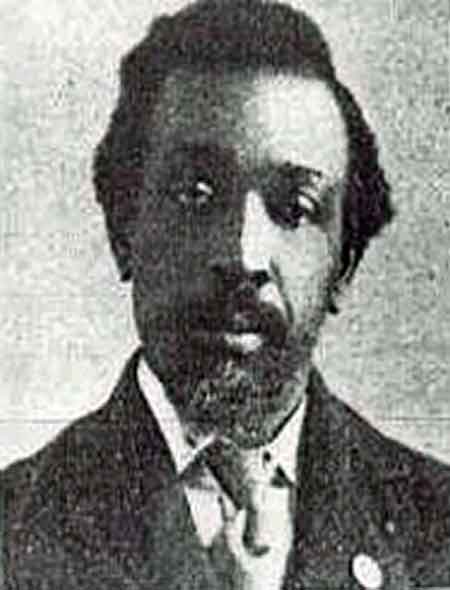Source: Atlantablackstar.com
The Patent Act of 1793 and 1836 barred enslaved Africans from obtaining patents because they were not considered citizens.
In 1861, Jefferson Davis, president of the Confederate States of America, enacted a patent law that allowed enslaved Africans to receive patent protection for their inventions, according to Bloomberg.com.
In 1870, the U.S. government passed a patent law giving all American men, including Blacks, the rights to their inventions.
Benjamin Montgomery
Benjamin Montgomery was born into slavery in 1819 in Loudon County, Virginia.
Montgomery obtained employment at a general store owned by his master Joseph Davis. He would eventually take over the entire purchasing and shipping operations of the store. During those days, merchandise was shipped by boat on the rivers connecting counties and states. However a timely shipment was not guaranteed since the depths of water in different spots throughout the river made navigation difficult.
In an effort to expedite the shipment of merchandise, Montgomery invented a propeller that could cut into the water at different angles, thus allowing the boat to navigate more easily though shallow water.
Montgomery attempted to patent his invention after regaining his freedom, but was rejected again.
Henry Boyd
Henry Boyd, who was born into enslavement in Kentucky, was an inventor, carpenter, and a master mechanic. He invented the corded bed with the wooden rail screwed into both the headboard and the footboard. According to findagrave.com, Boyd was unable to patent his invention, but eventually earned enough money to buy freedom for himself and his brother and sister in 1826.
Undeterred by the laws barring him from obtaining a patent and now a freedman, Boyd started H. Boyd Company in 1836, selling his invention the “Boyd Bedstead.” He made sure to stamp his name on every finished product to assure buyers it was his work.
The Notable Kentucky African American Database records that in 1843 Boyd was among the most successful furniture makers in Cincinnati, Ohio, where his company was based.
Benjamin Bradley
Benjamin Bradley, was born into enslavement around 1830 in Maryland. He “was put to work in a printing office and at the age of 16 began working with scrap he found, modeling it into a small ship. Eventually, with an intuitiveness that seemed far beyond him, he improved on his creation until he had built a working steam engine, made from a piece of a gun-barrel, pewter, pieces of round steel and some nearby junk,” according to blackinventor.com.
Bradley’s ingenuity earned him a job at the Annapolis Naval Academy, where he was a classroom assistant in the science department. While there, he developed a steam engine large enough to drive the first steam-powered warship at 16 knots for warships in the 1840s. He later sold the invention and bought his and his family’s freedom.
Ned ?
Oscar J. E. Stuart (or Stewart), a white Mississippi slave owner, wanted to receive a patent for the invention of a Black man, Ned, whom Stuart held in bondage. Ned had invented the cotton scraper. Stuart’s request was denied after he could not prove he was true inventor of the cotton scraper. Stuart persisted, penning a letter to the Secretary of Interior Jacob Thompson, on August 25, 1858, asserting that “the master is the owner of the fruits of the labor of the slave, both manual and intellectual.”
That same year, both enslaved Blacks were barred from applying for patents and their slave owners on their behalf.
Despite numerous rejections, Stuart began manufacturing the creation and reportedly used this testimonial from a fellow plantation owner:
“I am glad to know that your implement is the invention of a Negro slave – thus giving the lie to the abolition cry that slavery dwarfs the mind of the Negro. When did a free Negro ever invent anything?”
In The Emergence of the Cotton Kingdom in the Old Southwest: Mississippi 1770-1860, the author states that “Former Mississippi governor Albert G. Brown wrote Stuart that his slave’s ‘double plow and scraper’ went ‘a long way ahead of both the common scraper and Yost’s then-famous plow and scraper.”
Jo Anderson
Cyrus McCormick, considered the “Father of Agriculture,” has been widely credited along with his father Robert for revolutionizing the farming industry with the invention of the mechanical reaper. Little is reported about Jo Anderson, the Black man who worked closely with slave-holder McCormick on the machine.
Lester R. Godwin Jr., a retired curator of the McCormick Farm in Augusta and Rockbridge, Va., said that Anderson “has as much to do with the later development of the reaper as Cyrus McCormick.” Adding, “Unfortunately, history likes to put things in neat boxes … and often those who are involved in the creation of something don’t get credit for it.”
McCormick’s grandson also acknowledged the work of Anderson in his 1931 book, “The Century of the Reaper.”
“Of that day in July 1831, when the reaper was first tested before an audience of friends, neighbors and skeptics in the Shenandoah Valley, Jo Anderson was there, the Negro slave who, through the crowded hours of recent weeks, had helped build the reaper.”











